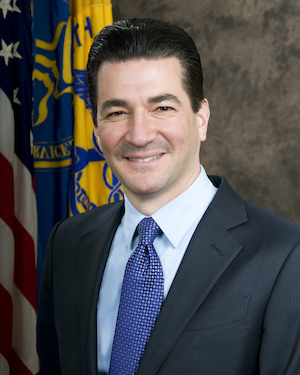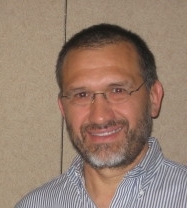 Two remarkable articles -- one on placebos, one on informed consent -- caught my attention. To set them up, a famous, perhaps apocryphal, story: A scientist tried to explain the solar system to a lay audience. When he finished, a skeptical woman told him he was wrong: the earth was flat, and rested on the back of a giant turtle. The scientist asked her what the turtle rested on. "Another turtle," she replied confidently. He then asked what that turtle was on. The woman would have none of it. "You can ask all you want, sir, but it's turtles all the way down." Faith is a funny thing. Especially in health care. Let's start with placebos...
Two remarkable articles -- one on placebos, one on informed consent -- caught my attention. To set them up, a famous, perhaps apocryphal, story: A scientist tried to explain the solar system to a lay audience. When he finished, a skeptical woman told him he was wrong: the earth was flat, and rested on the back of a giant turtle. The scientist asked her what the turtle rested on. "Another turtle," she replied confidently. He then asked what that turtle was on. The woman would have none of it. "You can ask all you want, sir, but it's turtles all the way down." Faith is a funny thing. Especially in health care. Let's start with placebos...
clinical trials
See the following -
Exosomes And Microvesicles Journal, a new Open Access publication
InTech Open Access publisher is pleased to announce the collaboration with the American Society for Exosomes and Microvesicles (ASEMV) to publish the scientific journal Exosomes and Microvesicles, a peer-reviewed publication designed to bring together exosomes principles, scientific research and clinical applications. Read More »
- Login to post comments
FDA and Patient-Focused Drug Development
The patient perspective is an important part of the drug development process. Through social media, the Internet, and advocacy groups, patients have become more informed about how drugs and devices are developed. FDA is committed to using this information to help foster the development and availability of safe and effective drugs that meet the needs of the American public. Read More »
- Login to post comments
FDA Clears IND For First Clinical Trial Protocol Developed Using Crowdsourcing
Transparency Life Sciences, LLC (TLS), the world's first drug development company based on open innovation, today announced that its Investigational New Drug Application (IND) to assess lisinopril as an adjunctive therapy for multiple sclerosis (MS) has been cleared by the US Food and Drug Administration (FDA). Read More »
- Login to post comments
FDA Launches Open Source Tool to Help Capture Data from Patients
 Today the U.S. Food and Drug Administration is announcing the MyStudies app, a new mobile technology to foster the collection of real world evidence via patients' mobile devices. Real world data can be collected from a variety of sources, such as electronic health records, claims and billing activities, and product and disease registries, as well as from patient-generated data including in home-use settings, or from data gathered from other sources, such as mobile devices. As part of the agency's work to foster greater opportunities around real world evidence, the FDA partnered with Kaiser Permanente on a pilot study to measure the functionality and engagement of the MyStudies app.
Today the U.S. Food and Drug Administration is announcing the MyStudies app, a new mobile technology to foster the collection of real world evidence via patients' mobile devices. Real world data can be collected from a variety of sources, such as electronic health records, claims and billing activities, and product and disease registries, as well as from patient-generated data including in home-use settings, or from data gathered from other sources, such as mobile devices. As part of the agency's work to foster greater opportunities around real world evidence, the FDA partnered with Kaiser Permanente on a pilot study to measure the functionality and engagement of the MyStudies app.
- Login to post comments
Formedix Partners With OpenClinica To Deliver Automated End-to-End Clinical Trial Builds
Clinical trial automation solutions provider, Formedix announces the launch of Transform for OpenClinica, with latest technology partner OpenClinica, helping companies to drive efficiencies in study set-up and study build of their clinical trials. Read More »
- Login to post comments
Going Mobile: How Mobile Technology is Evolving in Clinical Trials
...[M]obile communication has been leveraged to provide information and access to services across multiple industries, from simple applications such as checking train timetables to mobile banking with secure access to personal information in a highly regulated industry. Clinical research is no exception to this trend and indeed the pharmaceutical industry has seen an increasing movement to leverage mobile technology to engage with patients and collect their data during clinical trials...
- Login to post comments
Graph Databases Find Answers For The Sick And Their Healers
The Neo4j graph database is proving to be popular in the medical community for connecting different entities...
- Login to post comments
Halamka on the JASON Report
On 4/09/2014, AHRQ released the JASON report, facilitated by Mitre. JASON is an independent group of scientists who advise the United States government on matters of science and technology. The intent of the report is to make recommendations for a new healthcare IT architecture to accelerate interoperability. Read More »
- Login to post comments
Health Committee: Hidden Trial Data Should Be Opened Up
The pharmaceutical industry should introduce a new code of practice, ensuring negative trial data cannot be hidden, according to the government’s Health Committee. Read More »
- Login to post comments
Health Games Platforms Mature In Preparation For Mainstream Adoption
For the past several years, researchers have strived to create compelling games that improve behavior, reduce stress, or teach healthy responses to difficult life situations...These efforts have born fruit, and clinical trials have shown the value of many such games. Ben Sawyer, who founded the Games for Health conference more than 10 years ago, is watching all the pieces fall into place for the widespread adoption of games. Business plans, platforms, and the general environment for the acceptance of games (and other health-related apps) are coming together. Read More »
- Login to post comments
Health IT tools lack proof of effectiveness
There are myriad apps, tools and technologies entering the healthcare marketplace--but most lack proof that they are helping consumers battle disease and stay healthy, according to an article in Fortune. To that end, hospitals must be very careful when adopting health IT, according to Richard Milani, chief clinical transformation officer at Ochsner Health System. "You want to be comfortable that the technology you're utilizing is reliable and accurate," Milani tells Fortune. "That's a genuine concern. If you have some scientific data or peer-reviewed data to back it up, that certainly makes it a little easier."
- Login to post comments
HIV Treatment Via Geranium Extracts: Natural Way To Fight Infection, Inhibit Replication
German researchers have found that geranium extracts can inhibit HIV type 1 by preventing the virus from invading human cells, raising the possibility that the next big thing in AIDS prevention may be found in your own backyard. Read More »
- Login to post comments
How Clinical Guidelines Can Fail Both Doctors And Patients
Any confusion over the recent news of cholesterol guidelines in the U.S. is perfectly understandable. On the one hand, the guidelines suggest that nearly half the population should use statins to stave off heart attacks and strokes. On the other, use of the drugs is not with potential side effects and, to many, will offer no substantive benefits. [...] Read More »
- Login to post comments
How Wearable Electronics Will Change Clinical Trials
 Advances in sensor technology and microelectronics have opened new opportunities in the health and life sciences industries. Wearable sensors allow for continuous bio-monitoring without any manual intervention, thus reducing provider-patient interaction and costs while contributing improvements in the quality of the data...The broad adoption of biosensors by consumers, combined with advances in Nano and Cloud technologies are expected to radically change the way research is conducted by the Life Science industry, improving patient recruiting and monitoring, while lowering development and therapy cost.
Advances in sensor technology and microelectronics have opened new opportunities in the health and life sciences industries. Wearable sensors allow for continuous bio-monitoring without any manual intervention, thus reducing provider-patient interaction and costs while contributing improvements in the quality of the data...The broad adoption of biosensors by consumers, combined with advances in Nano and Cloud technologies are expected to radically change the way research is conducted by the Life Science industry, improving patient recruiting and monitoring, while lowering development and therapy cost.
- Login to post comments
In Healthcare, It's Placebos [Almost] All the Way Down
- Login to post comments